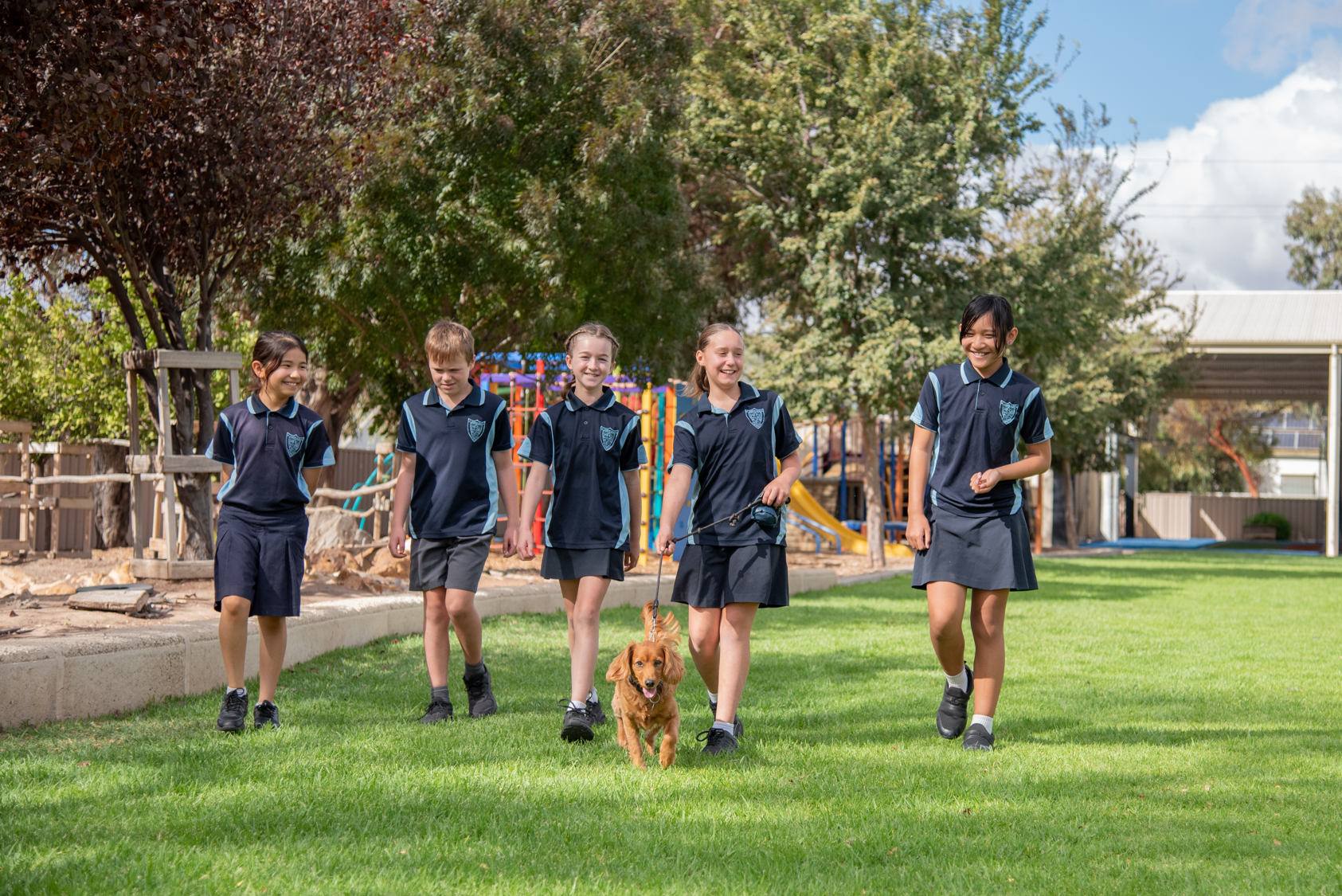
The expectation for the behaviour of all students is to be safe, respectful, and positive in their learning.
We encourage students to make good decisions and to act responsibly and ethically.
We believe it is important to work with parents to develop students' skills in how to:
We believe students develop personal responsibility when there is a whole school approach. This is underpinned by caring relationships, active learning, and an engaging curriculum that is flexible and responsive to student needs and is within the context of wider environmental and community relationships.
Each person in our community needs to take responsibility for creating and supporting the learning environment.
Students need to take responsibility for their own behaviour choices, respect and support the rights of others, and accept consequences for their choices.
Parents need to take responsibility and accept that they are role models for their children, encourage their children to make good choices, and support school policies and practices.
Staff take responsibility to create a safe, caring, and supportive learning environment, to be role models, to support students to develop personal responsibility, and to support school policies and practices.
Wellbeing is an important part of the holistic development of students at St Joseph’s School, providing them with learning opportunities and the tools to navigate social and emotional intelligence. To support this development, the school has a qualified School Counsellor and a Wellbeing Coordinator.
Providing students with a sense of worth, agency and safety will encourage them to develop their full potential. At St Joseph's, we incorporate the following strategies to support students:
Here, at St Joseph’s School, we have adopted Positive Behavioural Interventions and Supports (PBIS) approach. PBIS is a whole school framework which helps schools to create positive and engaging learning environments.
What does PBIS look like at St Joseph’s Primary School?
St Joseph's School understands that each child has individual learning, social and emotional needs.
The Inclusive Education Team comprises an Inclusive Education Coordinator, Wellbeing Coordinator, and a range of Allied Health Professionals who visit our school regularly to provide one-on-one support through NDIS packages.
The Inclusive Education Team works closely with ESOs, Class teachers, Parents/Carers, and Allied Health Professionals (includng Behavioural Therapists, Psychologist, Occupational Therapists, Speed Pathologists and others), to create appropriate strategies and resources to support students and their particular needs.
The team regularly monitors those students on a Personalised Plan for Learning (PPL). Regular review meetings are held and documented to collaboratively plan for individual needs. The school has access to a range of Interpreters to assist with this process.
Children are transitioned from Kindergarten to Reception and from Primary to High school, in keeping with our Pastoral Care focus.
The Inclusive Ed Team engages with ongoing Professional Development to keep up-to-date with contemporary best practices and current guidelines for Nationally Consistent Collection of Data (NCCD). These programs target social/emotional strategies, communication, social skills, self-regulation, and school readiness.
Our Wellbeing & Learning Centre is a space which provides a calm and safe space for children. The intent of the WLC is to provide an alternate, supported space for learning and regulation to meet the diverse needs of all students. The Wellbeing & Learning Centre has three zones, a Learning Zone, Motor Zone and Calming Zone. The Learning Zone is a place where children can work 1:1 or in small groups. The Motor Zone can be used to develop gross and fine motor skills, as well as heavy work to assist in regulation. Lastly, the Calming Zone provides a peaceful space for children to calm and reset their emotional battery. This space can be used independently or, when required, co-regulation is provided.
Charlie is our school’s wellbeing dog, dedicated to bringing joy and comfort to our students and staff. His visits are designed to help us feel more relaxed and uplifted, especially during times of stress or worry.
When Charlie is calm and settled, and with your teacher's permission, you may have the opportunity to pet, play with, or even read to him.
It’s important to remember that while Charlie is here to support us, he has an important role and needs to be treated with care and respect. He is not the same as a pet dog at home; he works hard to make our school a happier place.
At St Joseph's School, we are committed to supporting our students' social and emotional well-being through our dedicated School Counsellor, Claire Dalzell. Claire is on-site every Wednesday and brings a wealth of experience as a qualified counsellor.
Claire collaborates respectfully with students, teachers, and parents to foster each student’s emotional growth and build on their individual strengths. Her child-centered approach ensures that counselling is tailored to meet each student's specific needs, goals, and developmental stages.
Counselling at St Joseph’s School is voluntary and flexible. Sessions can be conducted individually or in small groups, depending on what best supports the student. Our service addresses a variety of issues that may affect a student’s well-being, including anxiety, depression, social skills development, grief, family issues, friendships, and more.
Forms can be obtained from and submitted to the Front Office to refer a student to the school counsellor. Students, parents, teachers, or school staff can make referrals.
We believe that with the right support, every student can thrive and achieve their full potential.